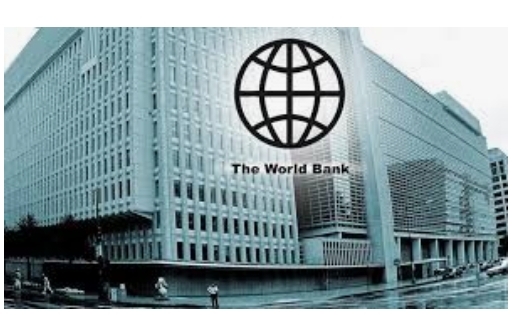The World Bank has responded to President Muhammadu Buhari’s announcement that his administration has pulled 10 million people out of poverty, claiming that increased food prices have driven seven million people into poverty.
The president’s and World Bank’s statements came at a time when the National Bureau of Statistics (NBS) reported that inflation fell by 0.19 percent in May 2021, despite growing public uproar over the high cost of basic necessities such as food, medicine, and other necessities.
Experts said the World Bank’s decision was unsurprising, given that the Nigerian Bureau of Statistics (NBS), the country’s most reputable statistics gathering and analysis organization, had come to the same conclusion and analysis outfit had in the past months showed how inflation was pushing the cost of commodities higher.
This was contained in a statement made available to newsmen in Abuja on Tuesday, quoting the World Bank said: “Food prices accounted for over 60% of the total increase in inflation. Rising prices have pushed an estimated 7 million Nigerians below the poverty line in 2020 alone.”
The statement signed by the bank’s spokesman, Mansir Nasir, cited the latest World Bank Nigeria Development Update (NDU), titled: ‘Resilience through Reforms”.
It reads; “It said while the government took measures to protect the economy against a much deeper recession, it would be essential to set policy foundations for a strong recovery.
“The figure which was based on data for last year indicated that the Nigerian economy experienced a shallower contraction of -1.8 per cent than had been projected at the beginning of the COVID-19 pandemic (-3.2%) in 2020.
“Although the economy started to grow again, prices are increasing rapidly, severely impacting Nigerian households,” it stated.
“The global lender advised the Nigerian government not to fail in sustaining and deepening reforms to cushion the economic downturn given the “more favourable external environment, with recovering oil prices and growth in advanced economies.”
According to the World Bank: “A failure to sustain and deepen reforms would threaten both macroeconomic sustainability and policy credibility, thereby limiting the government’s ability to address gaps in human and physical capital which is needed to attract private investment.”
Commenting, the World Bank Country Director for Nigeria, Shubham Chaudhuri, said, “Nigeria faces interlinked challenges in relation to inflation, limited job opportunities, and insecurity.
“While the government has made efforts to reduce the effect of these by advancing long-delayed policy reforms, it is clear that these reforms will have to be sustained and deepened for Nigeria to realise its development potential.”
On his part, the World Bank Lead Economist for Nigeria and co-author of the NDU Report, Marco Hernandez, said: “Given the urgency to reduce inflation amidst the pandemic, a policy consensus and expedite reform implementation on exchange-rate management, monetary policy, trade policy, fiscal policy and social protection would help save lives, protect livelihoods and ensure a faster and sustained recovery.”
The World Bank in the NDU report also faulted the Central Bank of Nigeria (CBN) on its management of the foreign exchange (forex) regime saying it was the reason for the current crisis.
The US dollar exchanged for around N509 at the parallel market on Monday.
“The way the exchange rate was managed limited access to FX and thus adversely affected investor confidence and investment appetite,” it stated.
The disparity between the official I&E Foreign Exchange Window (IEFX) and the parallel market has widened to as high as N90 in recent weeks due to a combination of speculation, demand and fear of future devaluation of the currency.
According to the World Bank, “Significant spreads between the official, the IEFX, and the parallel exchange rate persisted throughout 2020 and as of April 2021, the spread between the official and the IEFX rate was estimated at 8% and between the IEFX and the parallel rate, reached 18% (the spread between the official and the parallel rate was 27%).”
Our correspondent reports that the CBN recently made its biggest move yet in unifying the exchange rate after it dumped its long-held official rate for the IEFX rate published by the FMDQOTC.
The apex bank also extended the Cash4Dollar scheme introduced back in March hoping in a bid to drive more diaspora inflows into the banking system.
“In May 2021, the CBN formally took concrete steps towards rate unification between the official and IEFX rates. However, there remains a 20 per cent premium between this unified rate and the parallel market rate.
“While this may indeed encourage the use of the formal channels, it is not clear that incentive payments will increase remittances to the country,” the World Bank remarked on the CBN’s Cash4Dollar scheme.
The World Bank recommended that the Central Bank should allow the IEFX market to function as it should by allowing a more market-friendly approach for exchange rate transactions. Rather than allow an unreliable way of reporting exchange rate prices.
The World Bank believes a return to a flexible exchange rate regime (post-2015 and pre-2020) will allow for limited interventions by the CBN.
“Until oil companies are allowed to sell FX receipts to IEFX bank participants, CBN would still have an important role to play as a supplier of FX,” it said.

